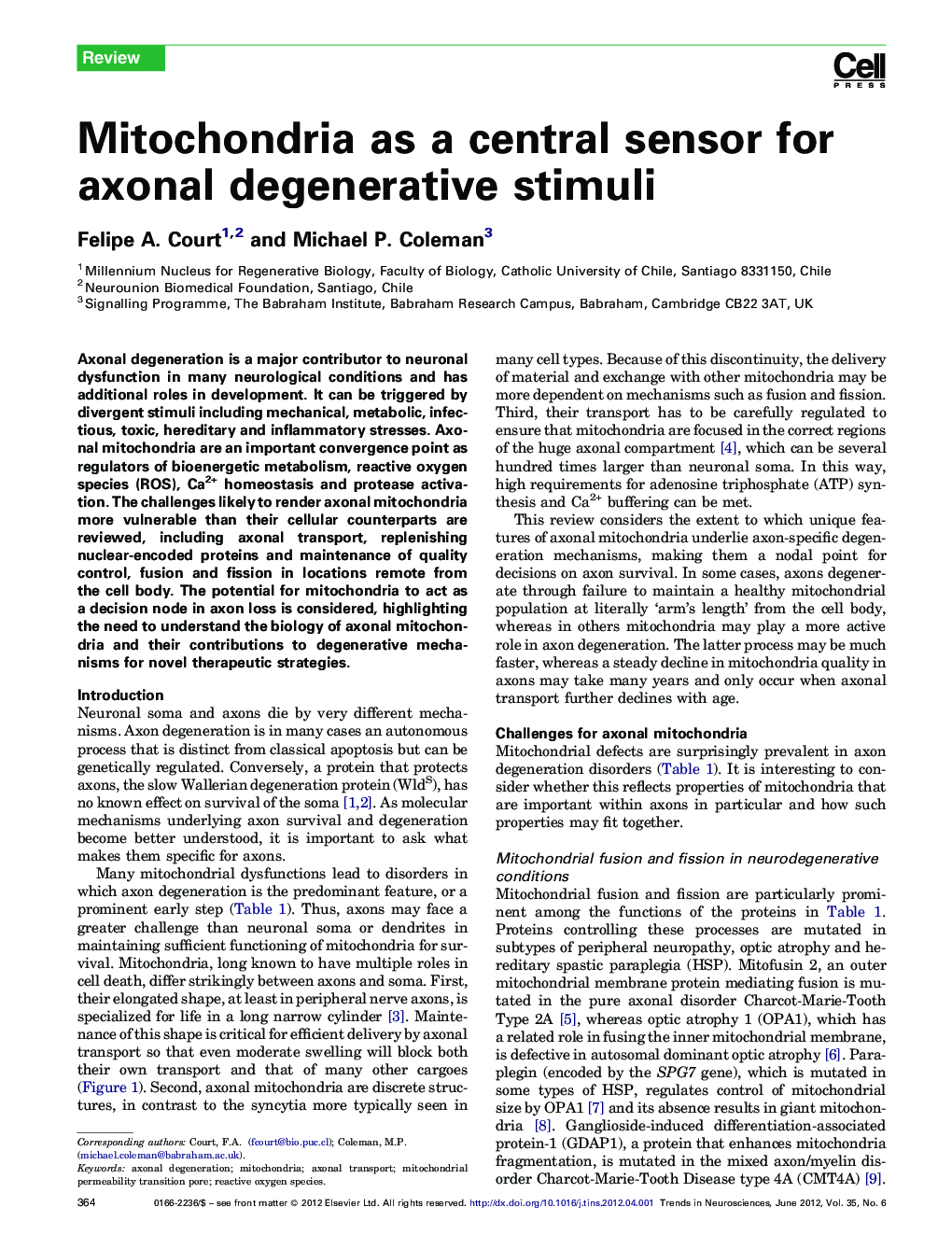| Article ID | Journal | Published Year | Pages | File Type |
|---|---|---|---|---|
| 4354339 | Trends in Neurosciences | 2012 | 9 Pages |
Axonal degeneration is a major contributor to neuronal dysfunction in many neurological conditions and has additional roles in development. It can be triggered by divergent stimuli including mechanical, metabolic, infectious, toxic, hereditary and inflammatory stresses. Axonal mitochondria are an important convergence point as regulators of bioenergetic metabolism, reactive oxygen species (ROS), Ca2+ homeostasis and protease activation. The challenges likely to render axonal mitochondria more vulnerable than their cellular counterparts are reviewed, including axonal transport, replenishing nuclear-encoded proteins and maintenance of quality control, fusion and fission in locations remote from the cell body. The potential for mitochondria to act as a decision node in axon loss is considered, highlighting the need to understand the biology of axonal mitochondria and their contributions to degenerative mechanisms for novel therapeutic strategies.
